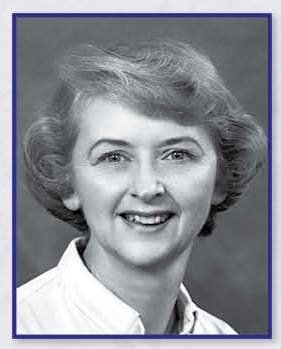
Evelyn S. Kritchevsky
9/16/1923-1/17/2019Evelyn S. Kritchevsky, 95, formerly of Bryn Mawr, a science educator, bird-watcher, and nature lover whose travels took her to all seven continents, died Thursday, Jan. 17, of heart disease at the Quadrangle in Haverford, where she had lived since 2015.
Dr. Kritchevsky taught at Rosemont College in Bryn Mawr and Spring Garden College in Chestnut Hill. From the mid-1970s until the later 1980s, she chaired Spring Garden’s biochemistry and medical technology department and directed its instructional improvement project. She also substituted for absent science teachers in the Haverford Township School District for many years.
Dr. Kritchevsky excelled at science, and made a career of the field after a push from her father. “It started when her father, who was an engineer, insisted that both my mother and her sister get a technical degree and a master’s, because he didn’t want them to be dependent on anyone for their livelihood,” said her son, Stephen. “That’s what she told me.”
Born to Anna Ericcson and Stephen Sholtes in Chicago, she attended public schools. In the mid-1940s, she received bachelor’s and master’s degrees in chemistry from Northwestern University. In 1978, she completed a doctorate in chemistry at the University of Pennsylvania.
While in a class at Northwestern, she met David Kritchevsky, a biochemist and expert in human nutrition. The two married in 1947. His postdoctoral studies took them to Zurich, Switzerland, and then to the University of California at Berkeley.
During the Korean War from 1950 to 1953, Dr. Kritchevsky worked for the Western Division of Tracerlab in Berkeley. The lab had been set up in 1948 to test for radioactivity in air samples gathered by airplanes and weather stations in the Northern Hemisphere.
The lab was looking for by-products of nuclear fission from Soviet nuclear bomb tests in the winds blowing eastward toward the United States, according to the 1995 book Spying Without Spies: Origins of America’s Secret Nuclear Surveillance System by Charles A. Ziegler and David Jacobson.
“She was involved in the analytical processing of those samples,” her son said. “The way they did it was very compartmentalized. She had one step of the process. She knew the overall gist of the thing but was not privy to the results.”
The family moved to North Jersey, where Dr. Kritchevsky taught at Upsala College. When her husband began working at the Wistar Institute in Philadelphia, the family moved to the Coopertown section of Bryn Mawr.
Dr. Kritchevsky taught at Spring Garden until retiring in 1988.
A skilled bird-watcher, Dr. Kritchevsky visited 60 countries and places including the Galapagos Islands, Nepal, and Timbuktu, hoping to see rare birds. Among the birds she talked about were the canyon wren in Utah and the Mexican crow at the Brownsville, Texas, town dump.
She told a Quadrangle interviewer in 2015 that she would travel primarily to see birds, but would squeeze in regular sightseeing.
She enjoyed ice skating, hiking, skiing, and cycling. She was a member of the Sierra Club and a supporter of local nature preserves, parks, and museums.
Dr. Kritchevsky was a generation ahead of her time, her family said. She supported nature preservation groups such as the American Bird Conservancy and Tyler Arboretum long before their activities became mainstream.
“She was fiercely independent, deeply committed to her causes, and active in all the communities in which she participated,” her family said. “She was greatly loved, respected, and admired, and was a role model for both peers and younger women.”
(Taken from Dr. Kritchevsky’s obituary in the Philadelphia Inquirer. February 1, 2019.)
